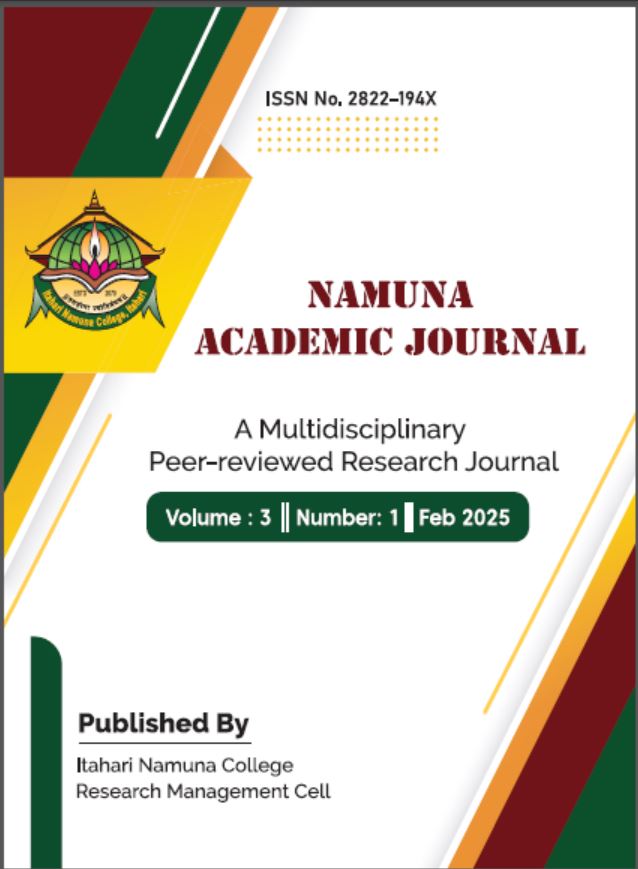Consequences of Hill Migration in Tarai: Frontier expansion and emerging livelihood diversification opportunity for Dalits labor
DOI:
https://doi.org/10.3126/naj.v3i1.76662Keywords:
Migration, Dalit, livelihood diversification, Tarai village, host communityAbstract
This study aims to explore the knowledge of the migration process from Hill to Tarai as a "means of livelihood opportunity" for Tarai Dalit agricultural laborers. I explore the question of what is positive happening when Hill people migrate to Tarai. An increasing number of people in the world are migrating to improve or secure their livelihoods; the migrant population not only benefits himself but facilitates other inhabitant peoples too. Migration plays a vital role in the host community towards opportunity production and social support. Migrants, in this context, serve as a means to access different livelihood opportunities in the formal/informal sectors' economy inside/outside their home villages. Despite this, migrants are rarely acknowledged as a promoting means of livelihood diversification for poor Dalit laborers. The objective of this study is to discover knowledge gaps against the "Hill migrants exploited Tarai people and encroaching Tarai resources" In contrast to this, the research establishes the claim the question that how Hill migrates in Tarai contributes significantly to expanding activities of boundary for local labors' livelihood opportunity. Do such things support Dalit labor livelihoods? Is there any positive effort made by Hill people in rural communities to shape Dalit Musahar's lives? It is acknowledged that migrant people in receiving or host communities produce various new spaces in non-agricultural sectors for job opportunities. Researching this phenomenon in Baijanathpur Village in Biratnagar Morang, the Researcher discusses migration and livelihood diversification theoretical conceptual debate, applying a qualitative in-depth interview method.




